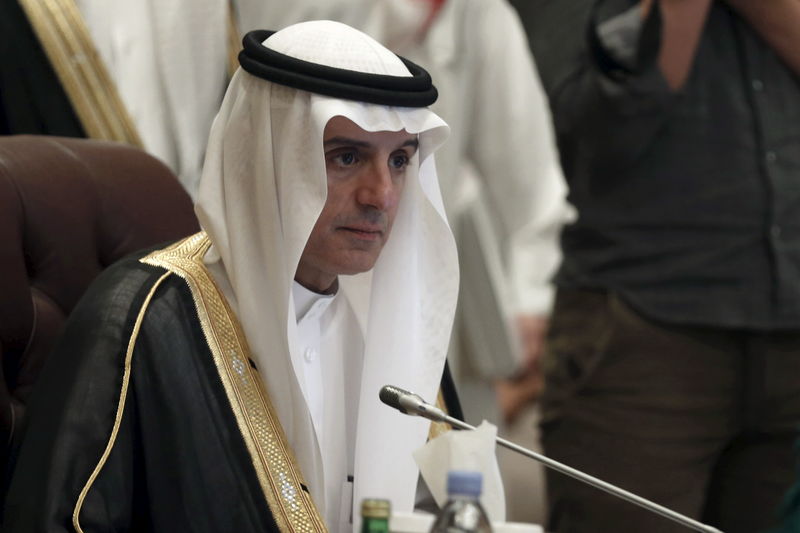By Suleiman Al-Khalidi
AMMAN (Reuters) - Saudi Foreign Minister Adel al-Jubeir said on Thursday his country was determined to confront what he called Iran's internal meddling in the affairs of Arab states, saying Riyadh had already curbed Tehran's efforts to expand its influence.
Regional instability has been fuelled by rivalry between Shi'ite Muslim Iran and the conservative Sunni Muslim kingdom of Saudi Arabia. Riyadh is among the main sponsors of the insurgency against Syrian President Bashar al-Assad, who in turn is backed by Iran and Lebanon's Shi'ite Hezbollah movement.
In addition, a Saudi-led Arab coalition has intervened in Yemen's war, carrying out air strikes on the Iranian-allied Houthi militia group and its allies to try to restore the exiled government of President Abd Rabbu Mansour Hadi.
"Saudi Arabia is working to confront Iran's trouble-making activities in the region," Jubeir told a news conference in Amman where he was meeting senior Jordanian officials.
"We are determined that Iran should not have a negative intervention in the region or in Arab countries."
Saudi actions had helped reduce the interference of Tehran and its regional clout in Yemen and other countries, he said.
"The work we are doing to confront Iran's influence has achieved successes in several countries and we see the presence of Iran has shrunk in some areas in Africa and Yemen," Jubeir said, without elaborating.
He said Saudi Arabia sought good relations with Iran but most of the recent "aggressive actions" seen in the region had emanated from Tehran, urging the Iranians to respect "the principle of non-intervention" in others' affairs.
The Islamic Republic has denied such accusations. Cut off from Yemen and its allies there by the Saudi-led intervention, Iran has intensified a media offensive against Saudi Arabia, accusing it of inflicting catastrophic suffering in Yemen while presenting itself as a blameless peacemaker.
Jubeir also called for Iraq's Shi'ite-led government to accelerate political reforms in order to give Sunni Muslims more say in running the country and end the "hegemony" of Iran there.
Saudi Arabia and Gulf Arab allies are deeply concerned about what they see as Iran's regional expansionism highlighted by its backing for Assad, Hezbollah, Iraq's Shi'ite militias and the Houthis, Yemen's strongest warring faction.

They are also concerned that U.S. President Barack Obama's progress towards a nuclear agreement with Iran in return for sanctions relief suggests their strongest ally may no longer help restrain Tehran.